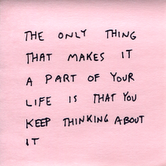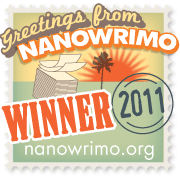For those who missed the first half, these posts are about using writing to get through bad head days. Those days you can’t force yourself to move, because your thoughts are too heavy. The first post was about keeping a journal. This one is going to remind you it’s ok to use your real conflict in your fictional narrative. Letting the emotions out in a safe way may lead to a better sense of ‘alrightness’.
So, you’ve have a really rough day. Your inner voice is being derogatory, you can’t stop thinking about the stupid mistake you think you made, AND on top of all of that, you aren’t sure if you can make it through to tomorrow because of whatever else is going on. What do you do to get that thought away? Dwelling on it won’t help you. Writing some conflict of that sort into your work or writing a short story may be enough to get through the immediate crisis.
Unconsciously, we insert ourselves into our characters. Bias, emotions – it’s all in there. The act of doing it deliberately is a completely different beast though. So let’s go back to that bad memory of the day, or one from a while ago; even if you know it’s insignificant, it still hurts you. So, we need to deal with it. We want the alrightness back, after all. Turn yourself into a character, with every flaw you think you have, and let him or her deal with it in lieu of you. Work through the situation in as many different positions and views as you need to.
I recently did this, and the memories hurt much less. They barely hurt at all. I will definitely do this again with the other painful memories.
Writing short stories seems to be very effective in my experience. I took the things making my depression worse and made a character go through it too. I made it greater than what I’d gone through. I let her make a choice, and saw it was one I never wanted to make.
Writing it out is therapeutic. Any writing can be therapeutic if you let it.
Do you want to yell, fight, curse; but can’t? You, as your avatar in your story, can! Your character fights the dragon for you. You reap the benefits.
Even possible having it published benefits.




